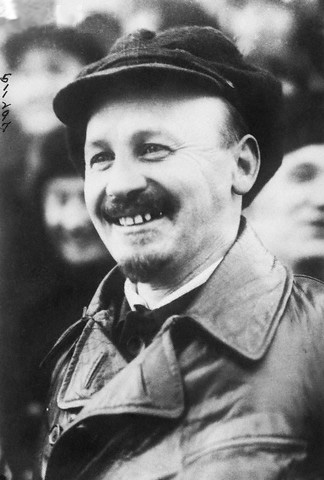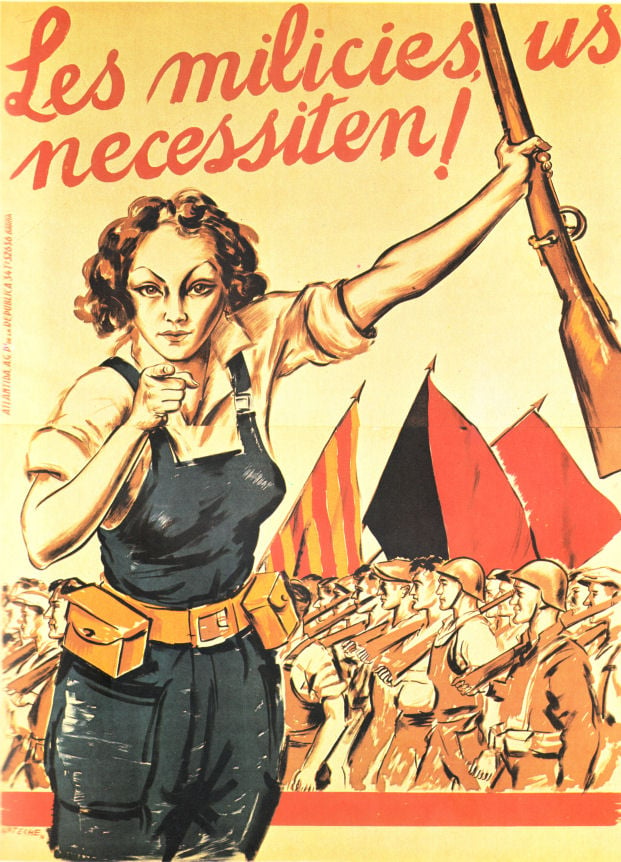- cross-posted to:
- workingclasscalendar@lemmy.world
- workingclasscalendar@lemmy.world
Nikolai Bukharin (1888 - 1938)
Tue Oct 09, 1888

Nikolai Bukharin, born on this day in 1888, was a Bolshevik revolutionary and Marxist theorist who, with Stalin, helped oust Leon Trotsky in 1927. His controversial trial and execution in 1938 alienated communist sympathizers in the West.
As a young man, Bukharin joined the Russian Social Democratic Labour Party in 1906, becoming a member of the Bolshevik faction. He served on a committee that was infiltrated by the Tsarist secret police, the Okhrana, and was imprisoned and exiled in 1911.
In 1911, Bukharin escaped exile, fleeing to Germany. During this period, he met Vladimir Lenin for the first time and authored “Imperialism and World Economy”, a work that predated and influenced Lenin’s “Imperialism, the Highest Stage of Capitalism”.
After Lenin’s death in 1924, Bukharin became a full member of the Politburo, allying himself with Stalin in the power struggles of that period. Bukharin formulated the thesis of “Socialism in One Country” put forth by Stalin in 1924, which argued that socialism could be developed in a single country, even one as underdeveloped as Russia.
Bukharin was aligned with the forces that defeated Leon Trotsky, Lev Kamenev, and Grigory Zinoviev in various power struggles within the Communist Party. A supporter of the market-based New Economic Policy (NEP), Bukharin opposed Stalin’s support of collectivization policies in the late 1920s. On this basis, he was criticized and began politically conspiring against Stalin.
After the trial and execution of Zinoviev, Kamenev, and other “Old Bolsheviks” in 1936, Bukharin was arrested in 1937 and charged with conspiring to overthrow the Soviet state. The following trial was controversial and drew international criticism, alienating some communist sympathizers abroad.
French author Romain Rolland wrote to Stalin directly, arguing that “an intellect like that of Bukharin is a treasure for his country” and drawing comparisons to the execution of chemist Antoine Lavoisier, guillotined during the French Revolution: “We in France, the most ardent revolutionaries…still profoundly grieve and regret what we did…I beg you to show clemency.” Bukharin was executed by gunshot on March 15th, 1938, at the Kommunarka shooting ground.
“We see now that infringement of freedom is necessary with regard to the opponents of the revolution. At a time of revolution we cannot allow freedom for the enemies of the people and of the revolution. That is a surely clear, irrefutable conclusion.”
- Nikolai Bukharin
- Date: 1888-10-09
- Learn More: www.marxists.org, en.wikipedia.org, spartacus-educational.com.
- Tags: #Communism, #Socialism, #Marxism, #Birthdays, #Imperialism.
- Source: www.apeoplescalendar.org
Some people forget how brutal the soviet state was. Wow.
In recent years, I’m occasionally still shocked at how quickly people forget. In the US today, there are people on TV and in government supporting ideals that our (great)grandparents fought against in WWII; people who’d have been ostracized and beggered in the US in the 40’s.
I have nostalgia for the Soviet Union, at least the noble public façade we saw in the West. The brutalist, but awe-inspiring, architecture; the music, the literature. It’s the same sort of appreciation I can have for the 1940’s Nazis: there’s something inspiring about an entire culture marching together in goose-step. The grand European Cathedrals built by the Catholic church; the United States, the nation itself, from sea to shining sea; beautiful things.
But like you say, we forget so quickly the starving peasants, the slave labor, the genocide, the Trails of Tears, and the oppression upon which all off those works were built. So many see only the propaganda, and come away with a wistful desire to return to the days of glory.
The nazis didn’t do anything good, the soviet mysic was crap, their litterature? They prevented good litterature.
You have waay too much weird nostalgia IMO :-)
“I never thought leopards would eat my face!”



